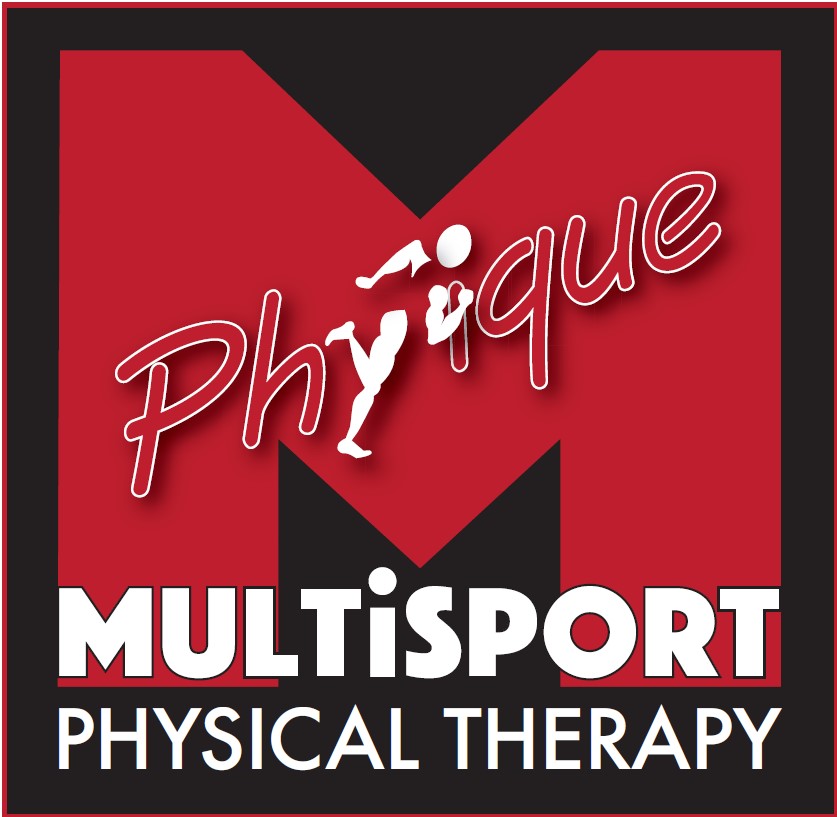Mark Kenny
TCSD Conversation by Craig Zelent
This interview was with a real life saver. Seriously! I sat down and talked triathlon and search and rescue with the Tri Club’s own Mark Kenny. Mark is a genuinely great guy who has risked his own life to help many people over the years. I know you’ll thoroughly enjoy getting to know this Good Samaritan.

Mark Kenny (on the right) with Matt Sparks during their recent climb of Mount Whitney
Craig: What was your sports background before triathlon?
Mark: I was a competitive tennis player in high school and for a few years into college. I wasn't great; I broke more rackets than won tournaments. I ran cross country one season as cross training and really liked it. I grew up in the San Gabriel Valley and our home course was the Mount Sac course where they have some outstanding races; it was a great introduction to running.
I joined the Sierra Club in college. They had a Basic Mountaineering Course that taught us navigation, rock climbing, snow and ice climbing; it was a great way to learn more about the mountains I loved since visiting Yosemite as a kid. I climbed in the Sierra Nevada, Tahquitz, Joshua Tree and all over California in the 80’s. I had a few "Epics" -- climbs that go awry due to bad judgment, simple mistakes, illness or weather. I suffered through some long nights and grueling hikes so maybe endurance events were in my future.
I continued to run as training until I started to develop some knee pain around my late 20’s. I took up road cycling in the 90’s when I moved to the Inland Empire and competed at the Redlands Classic public races. I took up swimming later when I started to travel for work. So I had done all three sports recreationally prior to starting triathlon.
Craig: How did you happen to get started racing triathlons?
Mark: I followed Ironman in the 80’s and 90’s and always thought that would be a great challenge. I moved to San Diego in 2001 and started ocean swimming. I joined a firm in 2004 where many of my colleagues were endurance athletes. They said "you ran in high school, swam and biked after college, so you just need to put them together.” It sounded like fun so I signed up for Spring Sprint in 2006. At the same time, I learned San Diego had a mountain rescue team. I had always wanted to get back into climbing and felt a rescue team would be a worthwhile way to do it. I thought the triathlon training would be good preparation for the physical demands of the team.
Craig: What is the Search and Rescue team you are a part of and what do they do?
Mark: Mountain rescue as a discipline emerged post-WWII when former troops from 10th Mountain Division and other units who had fought in the mountains returned home and wanted to apply their skills. Mountain rescue teams are specialized teams that train and operate in high altitude, alpine environments on rock, snow and ice and have medical first response as well as technical rescue skills. We have a certification body, the Mountain Rescue Association, and each team re-certifies annually in one technical area (Snow and Ice, Technical Rope Rescue, etc.) We also have federal, state and local requirements that we have to meet, including training, technical knowledge and background checks.
San Diego Mountain Rescue Team was founded in 1967 as a result of two hikers that got lost in the Sierra Madre Occidental in Baja. The team is one of only two independent teams in California (most teams are organized and operated by their local county Sheriff, which has the legal responsibility for lost person searches. We have about 60 active members, ranging from 21 to 60+ years old – some of our best searchers are in the 50+ group so age is not a factor, there is a role for everyone to apply their strengths – physical, mental and experience – to the team.
You might ask why we have a mountain rescue team when San Diego County has no mountains above 6,400 feet in elevation. Our skills translate to some of the well-known areas in the San Diego backcountry where people can get in trouble. We also support teams in San Bernardino, Riverside and Los Angeles where the mountains are higher. Since San Diego and Southern California has such a wide variety of terrain, we train monthly in the mountains, deserts and everywhere in between. Our desert training is in August (think Kona training with a pack) and our best trainings usually involve some rain, snow, darkness and vertical exposure.
We operate in conjunction with the San Diego County Sheriff's Search and Rescue Team. We respond to both urban and back country callouts and average about 30 operations per year. Urban searches involve "at risk" individuals (Alzheimer/Dementia, mental or emotional challenges) who have walked away, gotten lost or threatened in some way. Callouts go to all active searchers and we average 10-50 searchers per operation based on need. The Sheriff has additional resources such as helicopters, ATVs, canine search teams that we work closely with.
Craig: What is the process to join the team and what was the qualification experience like for you?
Mark: We recruit each fall and the only paper requirements are that you be 18, have extensive backpacking experience and be in good physical shape. Of course you must be a team player, calm in stressful situations, have a desire to help others and other "soft" skills. We interview applicants and invite a small group to join us on a weekend training in the local mountains. We average about 15-20 recruits each year with about a 50% attrition rate in the first year.
I joined in 2007 and my biggest concern was whether the group would be a type-A, military-oriented, risk seeking bunch of yahoos. After a lot of triathlon training and hiking up Iron Mountain with a heavy pack I knew I was ready for the endurance aspect of the training. However, I wasn't prepared for physical demands of carrying the litter, extra packs and all the gear the team brings.
We had a small recruiting class that year so the group consisted of about 20 people carrying the litter with the gear in it up Devils Slide trail (2.5 miles, 2,000 feet gain) on Mount San Jacinto in heavy winds. Later that night we were met with rain, then freezing rain/sleet and finally snow. We woke to a cold mist and had two full days of navigation, rappelling, litter packaging and mock searches. We ended the weekend carry a team member down the mountain in hot, dusty conditions. It destroyed me! I got home around 6 p.m. Sunday and fell asleep by 7 p.m. It took the better part of a week to recover!
I found the team to be very much like the skilled, cautious, supportive, teams I climbed with in the Sierra Club in the 80’s. I was accepted onto the team as a Trainee. All team members must attend 50% of trainings and 20% of operations each year to maintain their active status. The next two years were spent training, taking a medical first responder course and gaining experience on operations. Eventually I started leading groups, trainings and was elected as a full Rescue Member in 2010. Rescue Members are signed off on all skills, have led trainings and demonstrated leadership on the team. I also was elected President of the team in 2011 and served two years in that role.
Craig: What have been some of the more notable searches you have been part of?
Mark: I searched for Chelsea King the night she disappeared. That was a tough search because we had a lot of concerned friends, family and public involved and we had to balance their concern with our need to manage the search. That night, we were looking for someone who had gone missing and was presumed injured.
As the search continued over the five days, our goals changed, we had heavy rain and many more resources including the FBI. After Chelsea’s body was found, we were then called out multiple times to search for Amber Dubois. While neither outcome was hoped for, finding the girls and bringing closure to their families was satisfying.
That was a tough time for many of our team members; we have support resources and critical incident debriefings that help members process their feelings and achieve some level of closure as individuals.
I also searched for Guillermo Pino in 2012, who had gone missing in the Arroyo Tapiado mud caves of Anza Borrego State Park. That was frustrating as we did not find him over 7 days of searching, involving up to 250 searchers from as far away as Santa Barbara, including a cave rescue team. Eventually his body was found by a private party and he was recovered by a mine rescue team due to the dangers of the cave he was in. He had fallen in one of the caves near his last known location and had expired prior to our arrival the following morning.
Those tough searches are contrasted by the many successful searches the team has participated in over the years. In almost all cases, the lost person is found or returns safely within 24 hours. We found a nice elderly gentleman recently eating by himself in a taco shop. His family said he loved tacos so we sent teams to all the taco shops in the area and found him there!
Craig: What is the most rewarding aspect of being part of the Search and Rescue team?
Mark: I think most of us do this because we have been lost or stuck somewhere in the back country and would like to think there is someone who will get out of their warm bed and go into bad conditions to try to find us. The camaraderie of the team is also a very important part of staying motivated to attend trainings and meet the membership requirements. The gratitude of the individuals or their families is especially poignant and somewhat unexpected. I am amazed at how grateful they are even when presented with difficult news.
Craig: What have been some of your most favorite triathlon experiences?
Mark: Well, mostly the people in the sport and the support among the athletes. Little things like a “good job” or high five can go a long way in the event. As most people know, I really enjoy Wildflower and that whole weekend. However, I’ve curtailed my camping since I do a lot of it every month now with the team! It must be like working in an ice cream shop; you lose the desire you once had for it! One of my most pleasant surprises is falling back in love with trail running, competing in Xterra trail runs and running in the Grand Canyon.
Since I train more than I race, I’d have to say some of those long days where you transcend the physical aspect of the sport, the endorphins kick in, a sunrise or sunset or a freak snow shower on a ride or run in the mountains have been some of my best experiences.
Craig: What was the dumbest thing you have ever done as a triathlete?
Mark: Wow, there are so many! First, not joining the club prior to doing my first triathlon! I was doing my own swims in the ocean (not recommended) and didn’t really know what sighting was all about. I strained my neck and pinched a nerve at Spring Sprint 2006 and could not race the rest of the season. Ouch! Arranging all my gear in T1 only to have it rained on during the swim was another “duh” moment.
I’m pretty famous for showing up with the wrong gear or missing something. I’ve run in bike jerseys, biked with swim goggles and shown up without my shoe insoles for my first ultra. I had to drive back 11 miles to the nearest town and buy a generic Dr. Scholl’s. I missed the start by 30 seconds. That was fun.
Craig: What is your favorite benefit of TCSD membership?
Mark: Definitely the people I’ve met and relationships I’ve developed that transcend the sport. I met my lovely wife Elizabeth at a swim and “chased” her for a couple of years before she said yes to a date in 2009. I think we were both smitten from there. We dated long distance, married in 2012, suffered through her nursing school and my job changes and are just now looking forward to having more time together and racing more. She has changed me in so many positive ways, keeps me grounded, doesn’t suffer my whining (much) and is very supportive of my search and rescue work. I’ve also met so many good friends who indulged my crazy schemes for workouts or “events” over the years.
My favorite “tangible” benefits are the club pot lucks, work outs, and sponsor swag and discounts. This can be an intimidating sport to get into and the club has done a great job building a support system around the sport.
Craig: What athletic performance are you most proud of?
Mark: Definitely the 2009 Montana De Oro 50K since it was the event where I put together a training schedule, did the work outs, fully prepared (except for the insoles) and completed without injury. I had committed to running the Grand Canyon rim to rim to rim with a couple of friends in October 2009. I had some great training runs including your Rancho Santa Fe 11-miler (many times), several Xterra races, repeats on Devil’s Slide trail on San Jacinto and several late night runs (“yes honey, I’m fine, go to bed, you have a race in the morning, I’ll be home soon”).
I signed up for the race which is held in one of my favorite State Parks in California and took my daughter and my niece with me as support. How I got two teenagers to hang around a race tent for 6 hours I don’t know. The race is two loops equally 25K that you repeat for the 50K.
I go out conservatively and feel great on the downhill’s, just bombing away like at the Xterra’s earlier in the year. I’m running in front of a woman and she’s complimenting me then I realize she and her friends are doing the 25K. Uh, maybe I should hold back a little? I get passed by numerous 50K racers then who I ended up passing in the second 25K.
I was really proud to keep it together and I’m just flying past people who are walking the final couple of miles. I enter the final switchback and I see my daughter and my niece hurrying from the parking lot down to the finish on the beach. My niece has had a tough time with rheumatoid arthritis so she can’t run and I’m watching her kind of shuffle run down this hill and I just lost it. It was my most satisfying finish.
Craig: If you could waive a magic wand over the sport of triathlon, what would you like to change?
Mark: That is tough, the sport has grown so much in just the last few years. Anything that makes the sport more accessible and fun, like a triathlon “park” that has permanent transition stations, showers, and course markings would be great. I think the junior programs and school programs that are emerging are great. Triathlon is the gateway drug to so many other fun pursuits, let’s keep it growing!
From the club perspective, I’d like to see races during the week (other than the aquathlons). Some of us have weekend commitments (kids, jobs, search and rescue) that prevent us from attending weekend events. How about a Friday evening race?
Craig: What are your future triathlon goals?
Mark: Wow, I feel I am just starting to progress within the sport itself and I look at guys like Gerry Forman and others as inspiration to go farther into the sport. I’ve had some back issues that go back to pre-triathlon years that I feel are just starting to be resolved, so I’m optimistic.
I believe you and I had a conversation once about how not running in my 30’s (due to vague knee issues that my conservative doctors never diagnosed as IT band) might have allowed me to run well into my “adult” years! I do feel like trail and beach running has allowed me to build strength and flexibility and stay relatively injury free over the years.
I still want to complete my first half ironman and then we’ll take it from there. I’d still like to go to Kona but I have a lot to learn, especially about nutrition.
Craig: How can people contact you for more information about the Search and Rescue Team?
Mark: Thanks Craig, they can contact me at markrkenny@gmail.com or visit our team’s website at http://www.sdmrt.org/. They should just be prepared to train and race a little less!
Craig: Mark, thank you so much for sharing your story. You have made a huge contribution to our community with your search and rescue efforts. Stay safe, my friend!
Craig Zelent is a USA Triathlon Level 1 Certified Coach. Craig can be reached at 760-214-0055 or tricraigz@yahoo.com.








